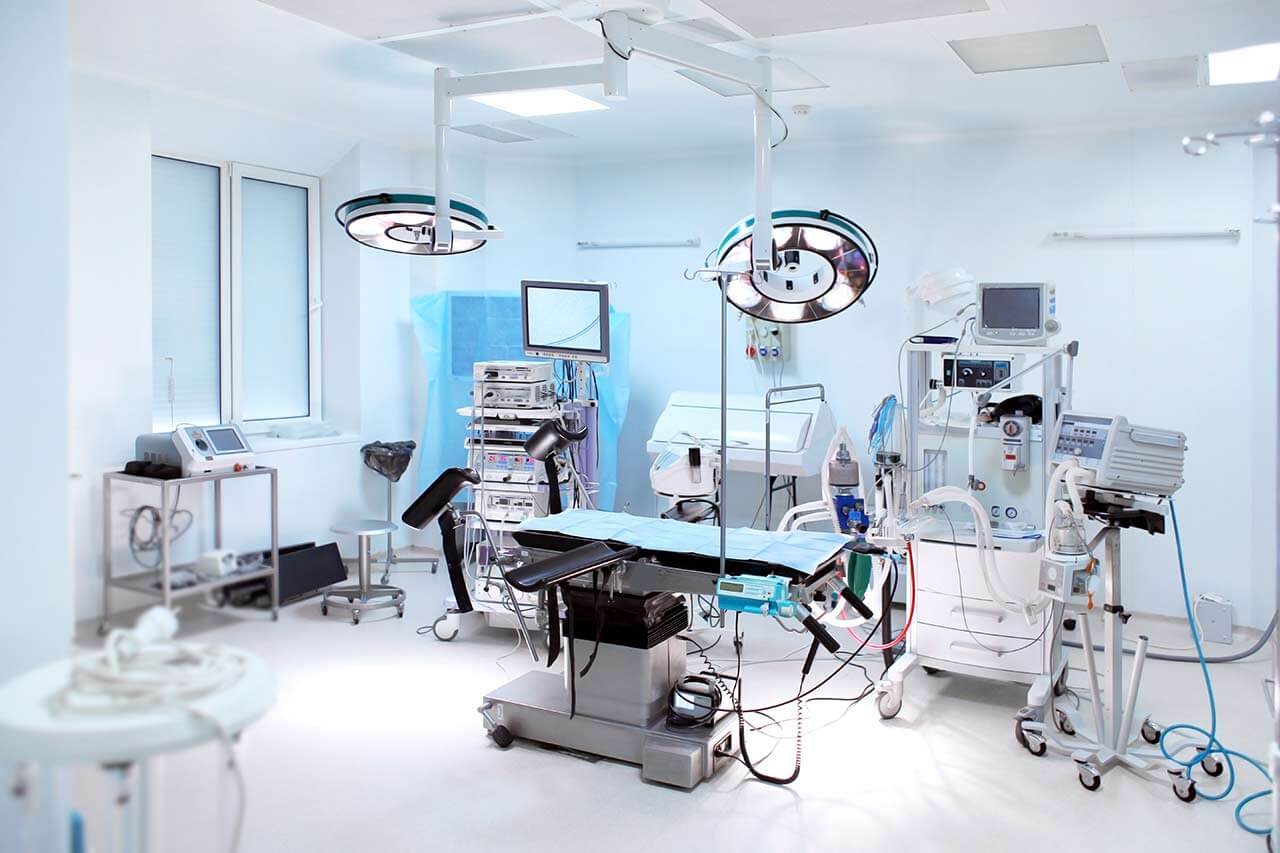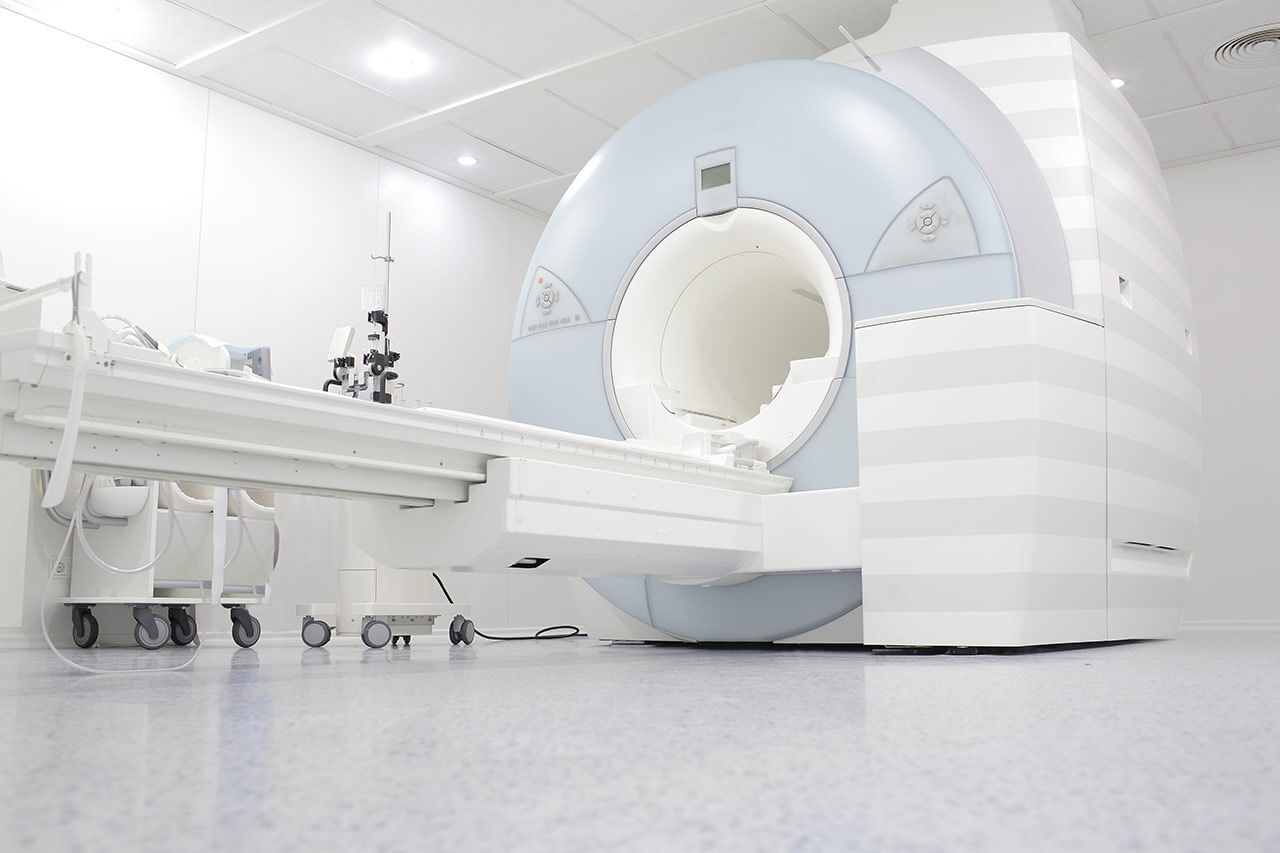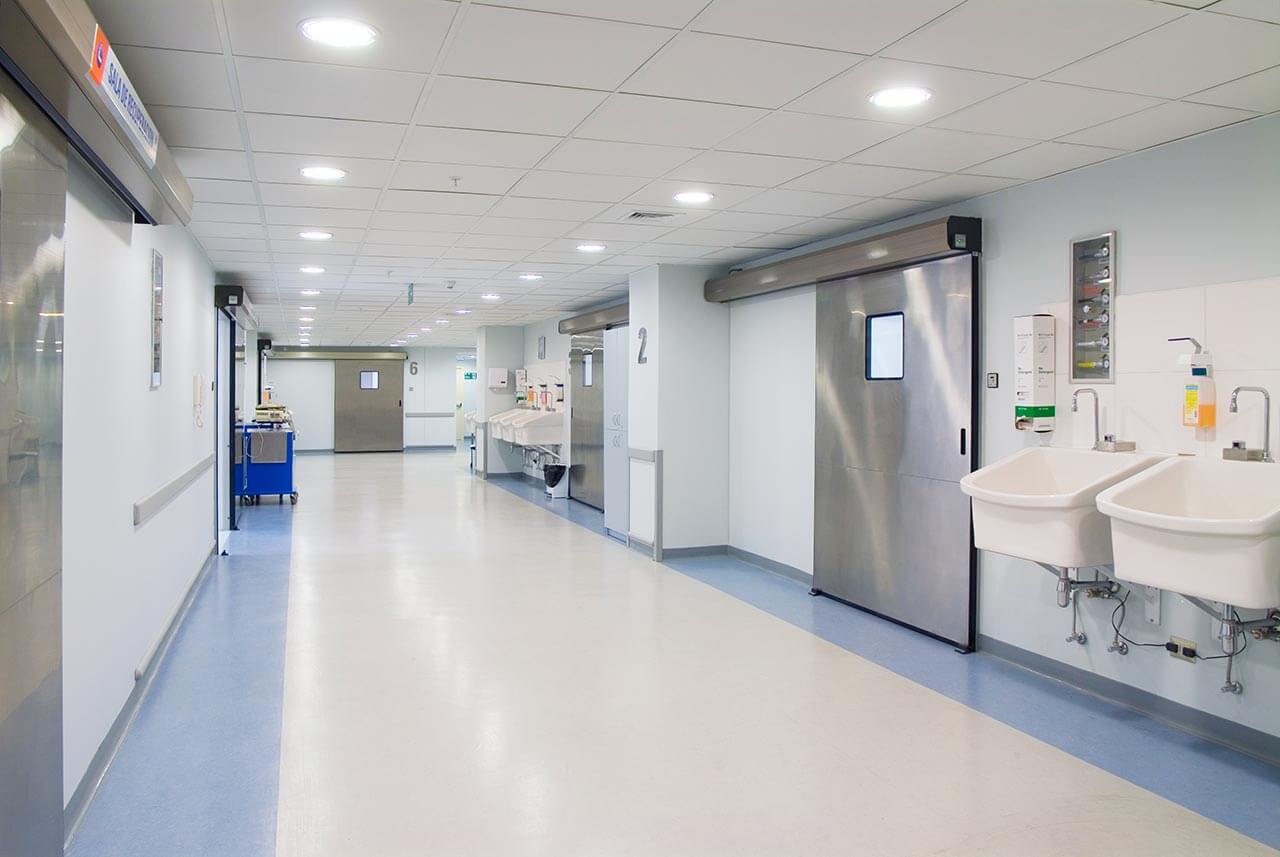
About the Department of Adult and Pediatric Neurosurgery, Spinal Surgery at University Hospital Halle (Saale)
The Department of Adult and Pediatric Neurosurgery, Spinal Surgery at the University Hospital Halle (Saale) specializes in performing surgical procedures of any complexity on the brain, spinal cord, spine, and peripheral nervous system in patients of all ages. The department's operating rooms are equipped with the latest technology to ensure the most effective and safe treatment of neurosurgical pathologies. During surgery, the department's specialists use innovative intraoperative neuromonitoring systems, neuronavigation devices, and continuous electrophysiologic monitoring systems. The department employs skilled neurosurgeons with extensive clinical experience and in-depth expertise, who prioritize effective treatment according to each patient's individual needs. The physicians strictly follow current clinical protocols and recommendations of the German Society of Neurosurgery (DGNC). It should be noted that the department is part of the Center for Neuro-Oncology certified by the German Cancer Society (DKG), has the status of a Center for Spine Surgery certified by the German Spine Society (DWG), and a Center for Skull Base Surgery certified by the German Society for Skull Base Surgery (GSB). The Head Physician of the department is Prof. Dr. med. Christian Strauss.
One of the most important areas of clinical activity of the department is the surgical treatment of brain diseases. Special attention is paid to the resection of benign and malignant brain tumors. The department's specialists successfully operate on patients with acoustic neuromas, gliomas, meningiomas, intraventricular tumors, brain metastases, epidermoid formations, and pituitary tumors. These surgical procedures are considered particularly complex because damage to vital areas of the brain during surgical manipulation can lead to irreversible neurological deficits. The neurosurgeons of the department mainly use minimally invasive techniques in the treatment of brain tumors, and in complex clinical situations they may resort to craniotomy (cranial trepanation). The excellent technical equipment of the department's operating rooms, combined with the outstanding professional skills of the neurosurgeons, allows for the most complex brain surgeries to be performed with successful results and a high degree of safety for the patient: advanced neuronavigation systems, intraoperative neuromonitoring, and continuous electrophysiological monitoring are used during surgery. In addition, the availability of state-of-the-art diagnostic imaging equipment in the department allows the specialists to pinpoint the location of a tumor in the brain and plan the surgical manipulation in advance.
The department's team of neurosurgeons is particularly skilled in the surgical treatment of acoustic neuroma, a slow-growing benign tumor characterized by a non-aggressive course. The classic symptoms of acoustic neuroma are hearing loss and vestibular dysfunction. In most cases, the only effective method of acoustic neuroma treatment is surgical resection. The tactics of surgical treatment depend on the size of the neoplasm and its growth rate. The department uses two main surgical strategies – radical removal of the tumor or reduction of its size to preserve the auditory nerve with subsequent irradiation. The neurosurgeons of the department perform neuroma resection surgery through the retrosigmoid approach, whose main advantage is the ability to preserve hearing, which cannot be achieved through the translabyrinthine approach often used by otolaryngologists. The specialists of the medical facility attach great importance to preserving the integrity and function of the facial and auditory nerves, therefore neurophysiological monitoring is always used during the operation. Doctors also apply the principles of neuroprotection, which is based on taking an individually prescribed set of medications to maintain and restore nerve function in the area of the pathological focus.
The department also provides medical care to patients with pathologies of the peripheral nervous system, the most common of which are carpal tunnel syndrome, cubital tunnel syndrome, tarsal tunnel syndrome, and tumors and injuries of the peripheral nervous system.Surgical procedures for the above conditions are performed using sparing microsurgical techniques under local anesthesia. In most cases, surgery is performed on an outpatient basis.
The department offers excellent services in spinal surgery. The medical facility performs surgeries to treat spinal and spinal cord tumors, inflammatory diseases of the spine (spondylitis), herniated discs, spinal canal stenosis, and chronic back pain. Specialists prefer sparing spinal surgery, so almost all interventions are performed here using minimally invasive, endoscopic, and microsurgical techniques. Minimally traumatic procedures provide good therapeutic results, while the risks of developing postoperative complications are practically zero, the patient is verticalized on the day of surgery, and recovery after surgical treatment takes a few days.
The department's range of surgical options includes the following:
- Surgical treatment of brain diseases
- Surgery for brain tumors
- Surgery for acoustic neuroma
- Surgery for gliomas
- Surgery for meningiomas
- Surgery for intraventricular tumors
- Surgery for pituitary tumors
- Surgery for epidermoid tumors
- Surgery for brain metastases
- Surgery for cerebral hemorrhages
- Surgery for acute and chronic subdural hematomas
- Surgery for epidural hematomas
- Surgery for intracerebral hemorrhages
- Surgery for cerebrovascular diseases
- Surgery for brain aneurysms
- Surgery for cavernomas
- Surgery for dural arteriovenous fistulas
- Surgery for arteriovenous malformations
- Surgery for hydrocephalus
- Surgery for brain tumors
- Surgical treatment of diseases of the peripheral nervous system
- Surgery for carpal tunnel syndrome
- Surgery for cubital tunnel syndrome
- Surgery for tarsal tunnel syndrome
- Surgery for tumors of the peripheral nervous system
- Surgery for injuries of the peripheral nervous system
- Surgical treatment of spinal diseases
- Surgery for spinal and spinal cord tumors
- Surgery for inflammatory spinal diseases
- Surgery for herniated discs
- Surgery for spinal canal stenosis
- Surgery for chronic back pain
- Surgical treatment of diseases of the nervous system in children and adolescents
- Surgery for brain and spinal cord tumors
- Surgery for meningocele
- Surgery for Arnold-Chiari malformations
- Surgery for spina bifida
- Surgery for tethered cord syndrome
- Surgeries for intraventricular hemorrhages
- Other medical services
Curriculum vitae
Current Positions
- Head Physician, Department of Adult and Pediatric Neurosurgery, Spinal Surgery, University Hospital Halle (Saale).
- Director, Interdisciplinary Centre for Neuro-Oncology, University Hospital Halle (Saale).
Clinical Interests
- Surgical procedures for acoustic neuromas.
- Surgical procedures for skull base tumors.
- Surgical procedures on the brainstem.
- Surgical procedures for neurovascular diseases.
- Surgical procedures for diseases of the nervous system in children.
Research Interests
- Intraoperative neurophysiological monitoring using the Hallenser Ampel system.
- Neuroprotection.
Memberships in Professional Societies
- German Society of Neurosurgery (DGNC).
- German Society for Skull Base Surgery (GSB).
- German Society for Clinical Neurophysiology (DGKN).
- American Society of Neurophysiological Monitoring (ASNM).
- International Society of Intraoperative Neurophysiology (ISIN).
Photo of the doctor: (c) Universitätsklinikum Halle (Saale)




